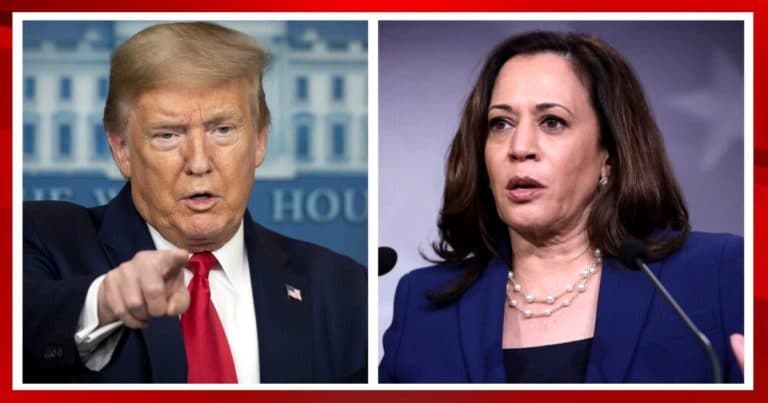
With Election Day right around the corner, you’d think we could have some clarity on the rules for voting. But no—yet again, the battleground state of Pennsylvania has been locked in a last-minute legal brawl over mail-in ballots. For those who thought the drama of 2020 was behind us, buckle up, because it’s 2024, and the stakes are even higher.
Let’s set the stage. Just days out from the election, courts across the country are handling issues that could swing this race one way or another. Mail-in ballots are at the heart of the controversy again, particularly in Pennsylvania, where the state Supreme Court just made a decision that has the potential to impact the entire race.
The question at hand? Whether mail-in ballots missing a handwritten date should be counted. And the answer from the Pennsylvania Supreme Court is a clear and emphatic no.
Why This Decision Matters
In 2020, Pennsylvania was a hotbed of election disputes, and here we are again, déjà vu in full swing. Back then, the debate over mail-in ballots and how they should be handled was intense. Now, Pennsylvania’s GOP has been pushing for strict adherence to election laws, and they’ve argued that any mail-in ballot missing a required date on the envelope simply doesn’t meet the standards.
From Fox News:
The Pennsylvania Supreme Court shut down an effort to allow mail-in ballots lacking a handwritten date to be counted in the 2024 election.
This ruling reverses a previous decision by a lower Commonwealth Court, which had ruled that requiring a handwritten date was unconstitutional. But Pennsylvania’s Supreme Court wasn’t having it. They sided with the GOP, insisting that rules are rules. Mail-in ballots without a date? Not going to be counted this time around. This could mean thousands of votes—especially in a battleground state like Pennsylvania—won’t make the cut if voters didn’t follow instructions.
Keeping the Rules Consistent, Finally!
This ruling isn’t just about a technicality; it’s about consistency in our voting process. The court’s statement was clear as day: the rules don’t get to change just because we’re days from the election. Pennsylvania’s Supreme Court Justice wasn’t mincing words in his opinion, either.
More from Fox News:
“Today’s order, which I join, rights the ship. And it sends a loud message to all courts in this Commonwealth: in declaring we would not countenance substantial alterations to existing laws and procedures during the pendency of an ongoing election, we said what we meant and meant what we said.”
Talk about clarity. It’s not often that we get such a straightforward message from a court, and this one is going to resonate. The rules set for mail-in ballots will stand firm. No more last-minute rule-bending for political gain. Pennsylvania’s Supreme Court essentially declared that fair elections mean following the laws as they’re written, not as they’re conveniently interpreted. This ruling couldn’t come at a more crucial time.
The Bigger Picture for Election Integrity
If there’s one thing voters have been calling for, it’s transparency and reliability in our elections. And let’s be real—mail-in ballots have become a focal point for concerns about election integrity. Democrats have leaned heavily on mail-in voting, especially post-2020, and have often argued that strict regulations are forms of “voter suppression.” But here’s the reality: if there’s no consistency, the process starts to lose credibility.
With this ruling, Pennsylvania joins other states in drawing a line in the sand. No more shuffling the deck at the last minute. Voters in Pennsylvania now know that if they want their vote counted, they have to follow the guidelines, plain and simple.
A Win for Trump’s Campaign?
Though no candidate was directly involved in this case, this decision is undeniably favorable for the Trump campaign, and a loss for Kamala Harris’s campaign. Trump’s focus on election integrity has resonated with voters, and rulings like these add credibility to his stance. It’s clear that many Pennsylvanians felt the uncertainty around election laws in 2020 left too many questions unanswered. This decision, however, provides some reassurance that rules are being followed and upheld.
And let’s be honest—if this ruling had gone the other way, it’s hard not to imagine the fallout. An exception here, an exception there, and suddenly we’re left with a system that doesn’t mean much. With Pennsylvania’s 19 critical electoral votes up for grabs, even small rulings like this can have a massive impact. Trump’s camp will likely view this as a solid win in their quest for a fair and transparent election.
As we inch closer to Election Day, every decision counts—literally. This ruling by the Pennsylvania Supreme Court just sent a strong message that election integrity, clarity, and consistency are more important than any political gain. Whether you’re for or against the ruling, one thing is certain: in Pennsylvania, the rules just became a little clearer. And for voters seeking transparency, that’s something worth celebrating.
Key Takeaways:
- Pennsylvania Court Stands Firm: The state Supreme Court ruled that undated mail-in ballots won’t be counted, reversing a previous ruling and siding with the GOP.
- Consistency in Election Laws: Pennsylvania’s Supreme Court emphasized the importance of sticking to the rules as they are, rejecting any last-minute changes.
- Impact on the Election: This decision could have serious implications for the 2024 election, especially with Pennsylvania being a key battleground state.
Source: Fox News